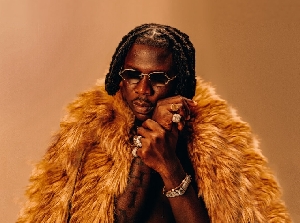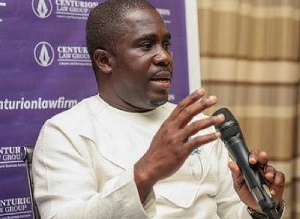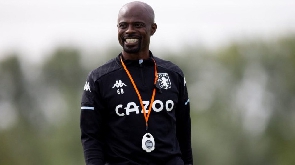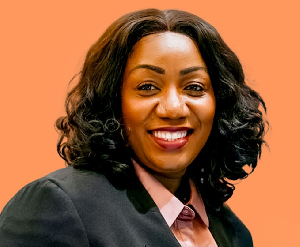By Kwame Okoampa-Ahoofe, Jr., Ph.D.
Following the presidential edict establishing a 9-member Constitutional Review Commission (CRC), the traditional overlord of Agogo, Asante-Akyem, Nana Kwame Akuoko-Sarpong, was reported to have thrown his full-weight behind the controversial $ 3 million exercise whose entire membership is both extra-parliamentary and extra-judicial. We highlight the latter facts because the Omanhene of Agogo also served in the short-lived Third-Republican Ghanaian parliament. We must further add, also, the fact that Nana Akuoko-Sarpong is a notable lawyer by profession.
What makes his exuberant support for the Constitutional Review Commission verge on the outright suspicious is the fact that, as a former parliamentarian and a publicly professed advocate of democratic governance, Nana Akuoko-Sarpong must be fully in the know about both constitutional and parliamentary protocol, particularly with regard to the fact of the Legislative Branch of any respectably functional democracy being charged with the critical responsibility of safeguarding the drafting, revision and implementation of the rules of good governance.
Thus his apparent lack of concern for the unorthodox application of an executive edict in the establishment of the CRC, particularly when the President is, himself, an interested party vis-à-vis the commission’s terms of reference, ought to raise eyebrows in every well-meaning corner of our august Republic.
Still, we must also hasten to observe the fact that the Agogo ’Manhene has not always been known to act with principled good faith where the political destiny of Ghana is concerned. For instance, in the wake of the forcible and flagrantly undemocratic removal of the popularly elected government of the Limann-led People’s National Party (PNP), rather than protest the summary abrogation of the democratic rule of law, Nana Akuoko-Sarpong smugly opted to serve under Mr. Rawlings’ so-called Provisional National Defense Council (PNDC), thus unduly facilitating the abjectly protracted delay in the return to democratic governance.
It is also quite curious that, as a legitimately invested chieftain and a “chameleonic” politician (some have even cynically described him as a “smooth-operating opportunist”), while he wisely does not concur with those ideologically jaundiced neocolonialist Ghanaians who would rather have our organically invested traditional rulers summarily excluded from the mainstream of modern Ghanaian political culture, neither would Nana Akuoko-Sarpong endorse the progressively principled stance in favor of the creation of an upper-parliamentary chamber geared towards a synergistic streamlining of salient aspects of both our colonial administrative legacy and its pre-colonial, indigenous, African counterpart, as pragmatically counseled by Dr. J. B. Danquah, the undisputed Doyen of modern Ghanaian politics and the foremost constitutional lawyer and scholar of his generation. Instructively, the former PNDC cabinet member has not always maintained such morally and culturally stultifying attitude towards the imperative development of postcolonial Ghanaian political culture. Indeed, in a January 2003 interview which he granted the Ghanaian Times, the former chairman of the National Commission on Culture observed, precisely, the urgent need for the abolition of the largely ceremonial Council of State and, instead, amend Ghana’s Fourth-Republican Constitution in order to facilitate the establishment of an upper house of the Ghanaian parliament composed largely of chiefs and other traditional rulers and dignitaries (See “Abolish Council of State” 1/13/03). Then only as recently as December last year, the Agogohene told a JoyOnline.com reporter that the functional incorporation of chieftaincy into modern Ghanaian politics was the only surefire way of guaranteeing the prevalence of “true democracy” (See “Nana Akuoko-Sarpong: Chiefs are Key to Achieving True Democracy” 12/4//09).
Needless to say, in electing the undemocratic application of a presidential, or executive, edict to establish his Constitutional Review Commission (CRC), Dr. John Evans Atta-Mills frightfully reminds the avid student of postcolonial Ghanaian history of those “Dark Days” when the so-called Convention People’s Party (CPP) held Ghanaians in a totalitarian stranglehold. This, of course, is absolutely of no wonder at all, for President Atta-Mills has proudly indicated time and time again that for the staunch Rawlings lieutenant, Ghanaian politics remains hermetically frozen at February 23, 1966. As to whether Ghanaians are still longsuffering enough to brook such flagrant abuse of executive power, remains to be put paid to.
*Kwame Okoampa-Ahoofe, Jr., Ph.D., is Associate Professor of English, Journalism and Creative Writing at Nassau Community College of the State University of New York, Garden City. He is a Governing Board Member of the Accra-based Danquah Institute (DI), the pro-democracy think tank, and the author of 21 books, including “Ghanaian Politics Today” (Atumpan Publications/Lulu.com, 2008). E-mail: okoampaahoofe@aol.com. ###
Opinions of Tuesday, 19 January 2010
Columnist: Okoampa-Ahoofe, Kwame
Nana Akuoko-Sarpong Is Confused!!!
Entertainment

















